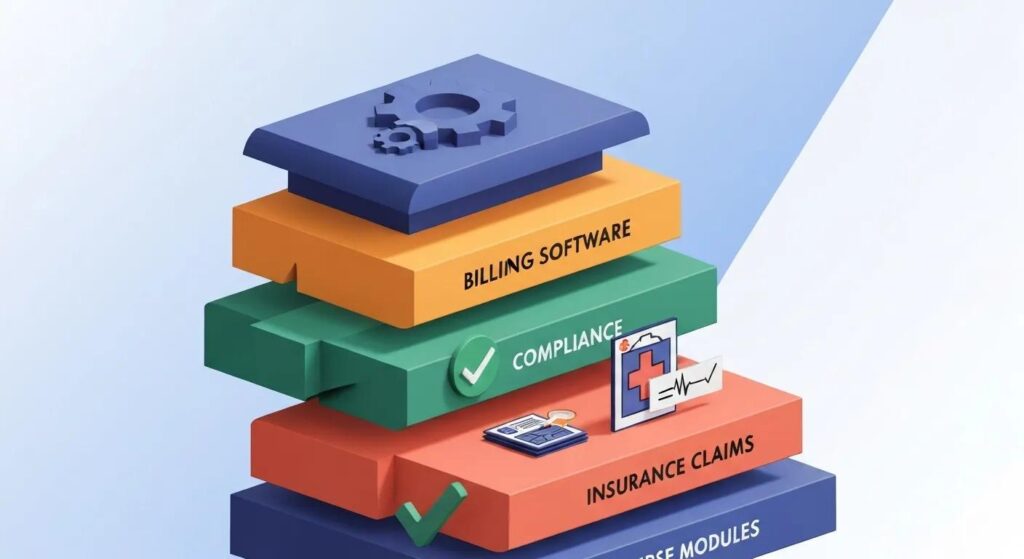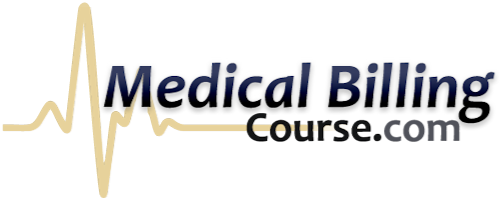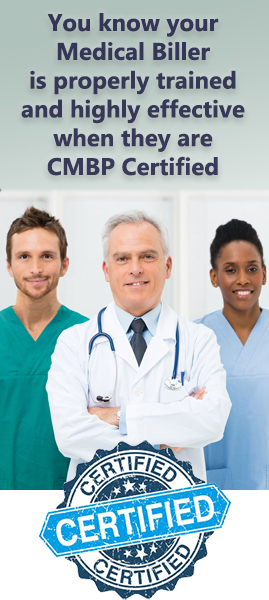- 10/31/2025
- Posted by: Medical Billing Course
- Categories: Medical Billing Certification, Medical Billing Course

Unlock Your Future: The Comprehensive Guide to a Rewarding Medical Billing Career
Embarking on a new career path can be daunting, but with the correct information and preparation, it can be an enriching journey. Medical billing, a vital component of the healthcare industry, offers a stable, in-demand, and flexible career for those with the right skills and dedication. This guide is designed for prospective students, providing a deep dive into why a medical billing course is an excellent investment in your future, backed by current data and industry insights.
Why Choose a Career in Medical Billing?
The healthcare industry is constantly evolving, and with it, the need for skilled professionals who can navigate the complex financial and administrative aspects of patient care. Medical billing specialists are the crucial link between healthcare providers and insurance companies, ensuring that medical services are accurately coded, billed, and reimbursed. This role is not just about processing paperwork; it’s about understanding the intricacies of healthcare finance, maintaining patient privacy, and contributing to the smooth operation of healthcare facilities.
Choosing a career in medical billing offers a unique blend of stability, growth potential, and flexibility. As the healthcare sector continues to expand, so does the demand for qualified medical billing professionals. This field is projected to see significant job growth in the coming years, making it a secure and promising career choice. A key question many consider is: Do I need medical billing certification? While not always mandatory, it significantly enhances your prospects.
“Medical billing is more than just a job; it’s a critical function that keeps the healthcare system running smoothly. Our goal at MedicalBillingCourse.com is to empower students with the knowledge and confidence to excel in this vital field.” — Tri Smith, Instructor, MedicalBillingCourse.com
About the Author: Tri Smith
Tri Smith is a seasoned instructor at MedicalBillingCourse.com with over 5 years of dedicated experience in educating aspiring medical billing professionals. With a passion for demystifying the complexities of healthcare finance, Tri has guided thousands of students through our comprehensive curriculum, helping them achieve their career goals and become certified medical billers. His practical insights and commitment to student success make him an invaluable asset to our program.
The Current Landscape: Data-Driven Insights
To truly understand the value of a medical billing career, let’s look at the facts and figures. The U.S. Bureau of Labor Statistics (BLS) provides invaluable data that paints a clear picture of the opportunities available:
- Projected Job Growth: A Thriving Field The U.S. Bureau of Labor Statistics projects a robust 9% increase in medical records and health information specialist roles from 2023 to 2033. This growth rate is notably faster than the average for all occupations, indicating a strong and expanding job market. Source: bls.gov
- Median Annual Salary: A Solid Foundation: In May 2023, the median annual wage for medical records and health information specialists was $48,780. This figure represents the midpoint of the salary range, with many professionals earning significantly more based on experience, certifications, and location. Source: bls.gov
- Salary Potential with Professional Certification: Elevating Your Earnings: Professional certifications can significantly boost your earning potential. Certified Professional Billers (CPB) report an average annual salary of $60,316, and Certified Professional Coders (CPC) can expect to earn an average of $64,495 annually. Source: uscareerinstitute.edu
- Remote Work Prevalence: Flexibility at Your Fingertips: Approximately 65.7% of medical records and health information specialists work remotely, offering unparalleled flexibility. Source: bls.gov
The Evolving Healthcare Revenue Cycle
The healthcare industry’s financial backbone is the revenue cycle, a complex series of administrative and clinical functions that generate, manage, and collect payments for healthcare services. Medical billing professionals are at the heart of this cycle, ensuring its efficiency and accuracy. Understanding the nuances of the revenue cycle is crucial for anyone aspiring to a career in this field. It’s not merely about sending out bills; it’s a strategic process that impacts a healthcare provider’s financial health and operational sustainability.
The revenue cycle begins the moment a patient schedules an appointment and continues long after they have received care. Key stages include:
- Patient Registration and Scheduling: Accurate demographic and insurance information is collected upfront.
- Insurance Verification: Confirming patient eligibility and benefits before services are rendered.
- Charge Capture: Documenting all services provided to the patient.
- Medical Coding: Translating diagnoses and procedures into standardized codes (CPT, ICD-10, HCPCS).
- Claims Submission: Preparing and submitting claims to insurance payers.
- Payment Posting: Recording payments received from payers and patients.
- Denial Management: Investigating and appealing rejected claims.
- Accounts Receivable Follow-up: Pursuing outstanding balances from payers and patients.
Each of these stages presents opportunities for errors that can lead to claim denials, delayed payments, and lost revenue. Medical billing professionals are trained to identify potential issues at each step and implement corrective actions. The increasing complexity of insurance plans, regulatory changes, and the shift towards value-based care models further underscore the need for skilled professionals who can expertly manage the revenue cycle. This is where the question, ‘Do I need medical billing certification?’, becomes particularly relevant for career advancement.
Deep Dive into Medical Billing Course Component

A comprehensive medical billing course is designed to equip you with the essential knowledge and practical skills needed to succeed in this field. These programs go beyond basic administrative tasks, delving into the core competencies required for effective medical billing and revenue cycle management.
Key Course Components:
- Medical Terminology: Understanding the language of medicine is fundamental. Courses cover anatomical, physiological, and pathological terms, as well as standard medical abbreviations and procedures. This ensures you can accurately interpret medical documentation.
- CPT (Current Procedural Terminology): Codes for medical, surgical, and diagnostic procedures and services.
- ICD-10-CM (International Classification of Diseases, Tenth Revision, Clinical Modification): Codes for diagnoses.
- HIPAA Compliance: The Health Insurance Portability and Accountability Act (HIPAA) is critical for protecting patient privacy and data security. Courses emphasize understanding and adhering to HIPAA regulations, including patient confidentiality, data breach protocols, and secure handling of Protected Health Information (PHI).
- Claims Processing: You’ll learn the end-to-end process of creating, submitting, and managing insurance claims. This includes understanding different types of insurance (e.g., Medicare, Medicaid, private insurance), claim forms (like the CMS-1500), and the electronic submission process.
- Revenue Cycle Management: This encompasses the entire financial process from patient registration and appointment scheduling to final payment. Courses cover patient demographics, insurance verification, charge capture, coding, billing, claims submission, payment posting, denial management, and accounts receivable follow-up.
- Medical Billing Software: Practical, hands-on experience with industry-standard billing software is often included, allowing you to become proficient in using the tools you’ll encounter in a professional setting.
- Career Support Services: Many reputable programs offer career services, including resume building, interview preparation, and job placement assistance, to help you transition smoothly into the workforce.
- CPT (Current Procedural Terminology): Codes for medical, surgical, and diagnostic procedures and services.
- ICD-10-CM (International Classification of Diseases, Tenth Revision, Clinical Modification): Codes for diagnoses.
How Do I Know If I Need a Medical Billing Course for My Career?
Deciding whether a medical billing course is the right investment for your career path involves self-assessment and understanding the industry’s demands. If you’re seeking a stable, in-demand role within the growing healthcare sector, possess strong organizational and analytical skills, and are interested in the financial and administrative aspects of healthcare, then a dedicated course is likely beneficial. It provides the foundational knowledge, specialized skills, and credentials that employers actively seek. For many, this leads directly to the question: Do I need medical billing certification to be competitive?
Consider these indicators:
- Desire for a Stable Healthcare Role: You want to work in the healthcare industry but prefer an administrative or financial focus rather than direct patient care.
- Interest in Healthcare Finance: You are intrigued by how healthcare providers are reimbursed and the processes involved in managing patient accounts.
- Strong Detail-Orientation: You have a keen eye for detail, which is crucial for accurate coding and claim submission.
- Problem-Solving Aptitude: You enjoy analyzing information and resolving issues, such as claim denials.
- Seeking Career Flexibility: You are looking for a career that offers potential for remote work and a good work-life balance.
- Need for Formal Training: You recognize that the complexities of medical billing and coding require specialized knowledge that is best acquired through structured education.
- Career Advancement Goals: You aim for roles with growth potential, such as billing management or auditing, which often require certifications obtained through comprehensive courses.
Career Pathways and Opportunities
A medical billing course opens doors to a variety of roles within the healthcare ecosystem. Whether you’re looking for a traditional office setting, the flexibility of remote work, or even the entrepreneurial path, medical billing can accommodate your aspirations. The answer to “do I need medical billing certification?” often depends on the specific role and employer, but it’s generally a decisive advantage.
Diverse Employment Settings:
- Hospitals: Large healthcare systems employ numerous billing specialists.
- Physician Offices: Smaller practices often rely on dedicated billing staff.
- Outpatient Clinics and Surgery Centers: These facilities also require skilled billers.
- Insurance Companies: Roles involve processing claims, reviewing appeals, and managing provider relations.
- Third-Party Billing Services: Companies specializing in providing billing services to multiple healthcare providers.
Specialized Roles and Advancement:
Beyond general billing, your expertise can lead to specialized roles:
- Medical Coder: Focusing specifically on assigning codes to diagnoses and procedures.
- Insurance Claims Specialist: Handling the intricacies of insurance claims.
- Accounts Receivable Specialist: Managing outstanding payments and collections.
- Billing Manager/Supervisor: Overseeing billing operations and staff.
- Auditor: Reviewing claims and billing processes for accuracy and compliance.
- Consultant: Providing expert advice on revenue cycle optimization.
- Revenue Cycle Analyst: Analyzing financial data and recommending strategies.
The Value of Professional Certification
In a competitive job market, professional certifications serve as a powerful differentiator. Earning credentials such as those offered through MedicalBillingCourse.com, Medical Billing Course with CMBP & HIPAA Certification, and the Medical Billing Course with CMBP & HIPAA Certification + Work From Home Business Modules and Guides certifications significantly enhances your employability. Employers actively seek out certified billers because these credentials signify a validated level of knowledge, skill, and commitment to the profession.
Beyond improving your job prospects, certifications often unlock access to more advanced positions. Roles in auditing, management, and consulting typically require or strongly prefer candidates with recognized certifications, offering a clear pathway for career progression and increased earning potential.
Is a Medical Billing Course Right for You?

If you are detail-oriented, possess strong organizational skills, enjoy problem-solving, and are interested in the intersection of healthcare and finance, a career in medical billing could be an excellent fit. The demand for skilled professionals is high, the work is often flexible, and the potential for growth and advancement is substantial. Medical billing offers a stable career path with opportunities to make a tangible contribution to the healthcare system.
Investing in a quality medical billing course is the first step toward securing a stable and rewarding career. It provides the foundational knowledge, practical skills, and credentials necessary to thrive in this essential healthcare support role. Explore Programs Now!
Ready to Transform Your Career?
Take the first step towards a fulfilling and in-demand career in medical billing. Our comprehensive programs are designed to equip you with the skills and knowledge needed to succeed.
The Future Outlook and Continuous Learning
The medical billing field is not static; it’s a dynamic environment shaped by technological advancements, evolving healthcare policies, and changing patient demographics. Professionals who commit to continuous learning and adaptation will find themselves best positioned for long-term success. The integration of artificial intelligence (AI) and machine learning in revenue cycle management is already beginning to automate specific tasks, such as data entry and initial claim scrubbing. However, this technology also creates a need for professionals who can manage, interpret, and leverage these advanced systems, as well as handle the more complex, nuanced aspects of billing that AI cannot yet replicate.
Furthermore, the increasing focus on data analytics within healthcare means that medical billing professionals with strong analytical skills will be in high demand. The ability to interpret billing data, identify trends, forecast revenue, and provide insights into operational efficiencies is becoming a critical competency. This opens up pathways into roles focused on revenue cycle analysis, performance improvement, and strategic financial planning. Staying abreast of regulatory changes, such as updates to ICD-10, CPT codes, and payer policies, is paramount. Professional organizations and continuing education courses play a vital role in keeping professionals informed. Embracing new technologies and committing to lifelong learning are not just beneficial but essential for thriving in the evolving landscape of medical billing.
Conclusion: Your Path to a Rewarding Career
A career in medical billing offers a compelling combination of job security, flexibility, and the opportunity to contribute meaningfully to the healthcare industry. With robust job growth projections, competitive salaries, and the increasing prevalence of remote work, it presents an attractive option for individuals seeking a stable and rewarding profession. The comprehensive training provided by a quality medical billing course equips you with the specialized skills needed to navigate the complexities of healthcare finance and revenue cycle management.
By understanding the core components of medical billing, the diverse career pathways available, and the importance of continuous learning and professional certification, you can confidently embark on this journey. The insights and data presented in this guide underscore the significant opportunities that await dedicated individuals in this essential field. Your future in healthcare finance starts with the proper education and a commitment to excellence.

